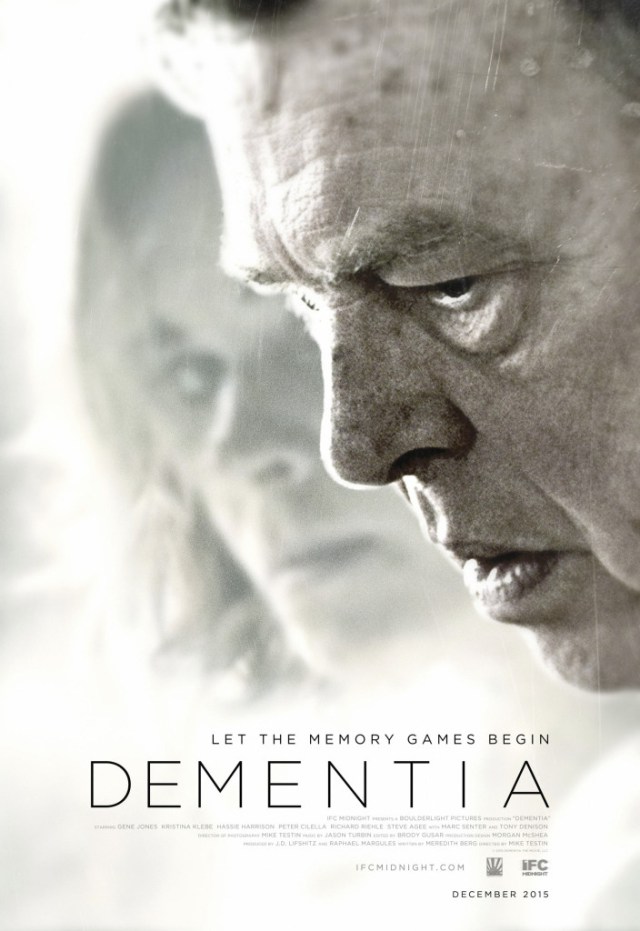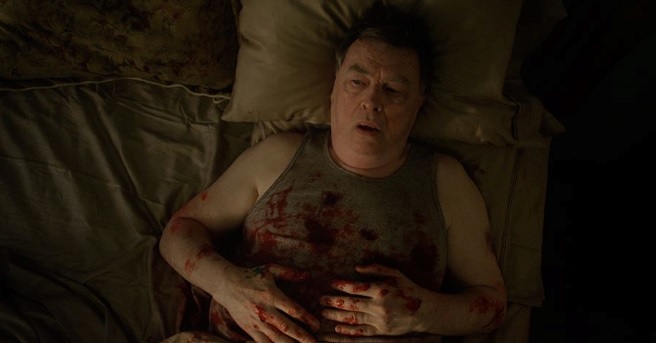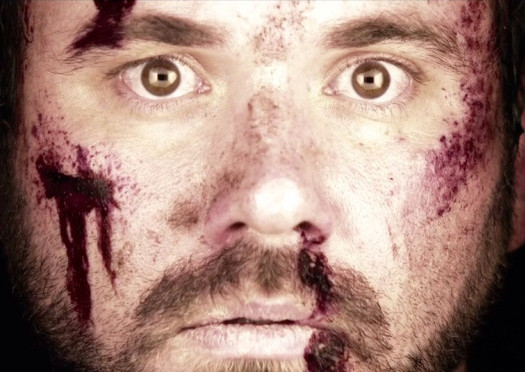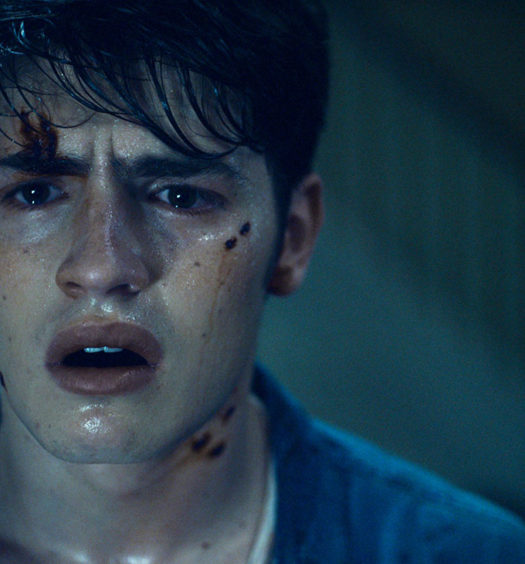George, a decorated Vietnam War vet, spends his days playing chess with his friend in the comfort of his own home. His health isn’t what it used to be, though, and he suffers a stroke in his yard in front of the child he just saved from a bout of bullying. Luckily, this spared George a lot of brain damage, but not enough to avoid being diagnosed with Dementia. His estranged son and granddaughter aren’t sure what to do with George until Nurse Michelle makes a house call and offers her aid as a live-in caregiver. Eager to be rid of George, his son accepts without bothering to verify credentials. Once alone with George, Michelle’s behavior becomes increasingly sinister.
Gene Jones, always a commanding presence, gives a nuanced performance as George. He’s ornery and tough, hardened by his memories of torture during his stint in Vietnam. Yet he’s also completely softened and vulnerable. He longs to make amends with his son for all of those years of drunken, abusive parenting. He wants to get to know his 18 year old granddaughter, who he only met once briefly during her childhood. George is also haunted by his past; Vietnam left him with horrific emotional scars. Visions of Hendricks (Graham Skipper), a comrade who chewed his own wrists to commit suicide during capture in the war, still plague him in the present day. Jones balances all of these emotions with effortless precision, making George completely relatable. You feel bad for his poor familial relations just as much as you feel concerned for his well-being.
Kristina Klebe is intense as psychotic nurse Michelle. She’s calm and sweet in outward appearance, but her penetrating stare when no one is looking induces chills. Klebe conveys so much malice without saying a word, and her character feels all the more dangerous for it. In fact, there’s not really a weak link in any of the cast. While George’s granddaughter, Shelby (Hassie Harrison), takes some adjusting with her parental role reversal she winds up becoming George’s only chance at redemption. It’s the connection between grandfather and granddaughter that becomes the emotional anchor, and then driving force, of the narrative.
The straightforward nature of the plot is refreshing. The film’s title alone had me thinking that George’s war PTSD and Dementia diagnoses might mean that George’s battle would be more inward, but nope. While his Dementia does affect his mental state, it’s utilized more as a means of heightening tension as he’s not easily able to escape Michelle’s crazy clutches.
Mike Testin has a lot of noteworthy cinematographer credits to his name, such as Contracted and its sequel, and that experience carried over into his directorial effort here. Dementia, quite simply, is beautifully shot. The score alternates between shrill, repetitive madness and haunting sorrow, carrying the depth of emotion when dialogue is sparse. It’s great, except during the climax in which the score drowns out most of what the characters are saying. With such a sucker punch of a finale, the sound error is disheartening.
The straightforward simplicity of the narrative does give way to predictability, and there are moments that will stretch credibility to the point of frustration. However, Jones’ performance alone and the complexity of his character, combined with Testin’s eye for visuals elevate Dementia far above its meager budget. This beautifully shot, horrific exploration on the widespread effects of PTSD is affecting. Equal parts tragic and violent, Dementia is an emotional journey that will leave you reeling.
Dementia is out in theaters and VOD Friday, December 4th. Buy/Rent it on iTunes now: https://itunes.apple.com/us/movie/dementia/id1058194298
Dementia [Review]
Affecting
Testin’s character study on the long lingering affects of PTSD and aging is beautifully shot if not somewhat predictable. Deeply emotional and complex, any flaws are easily overshadowed by Gene Jones’ riveting performance.































